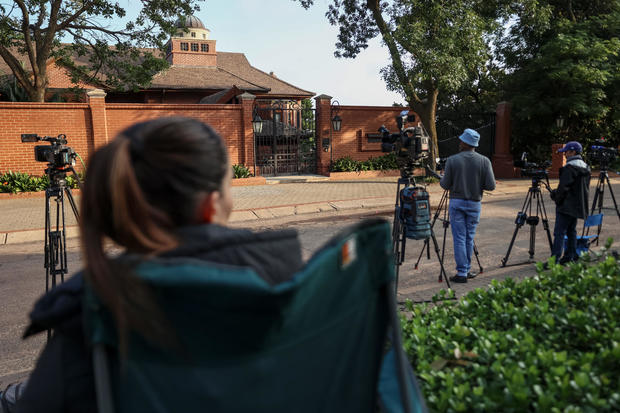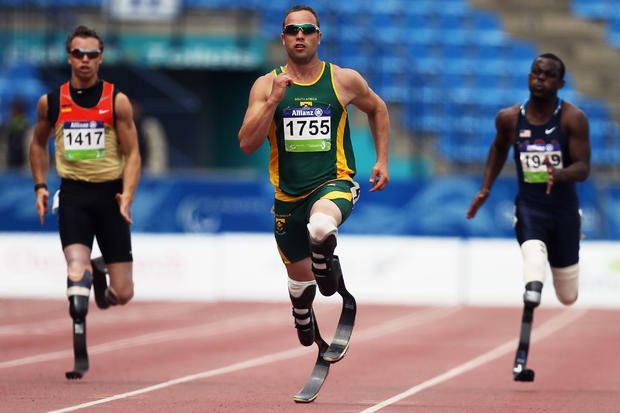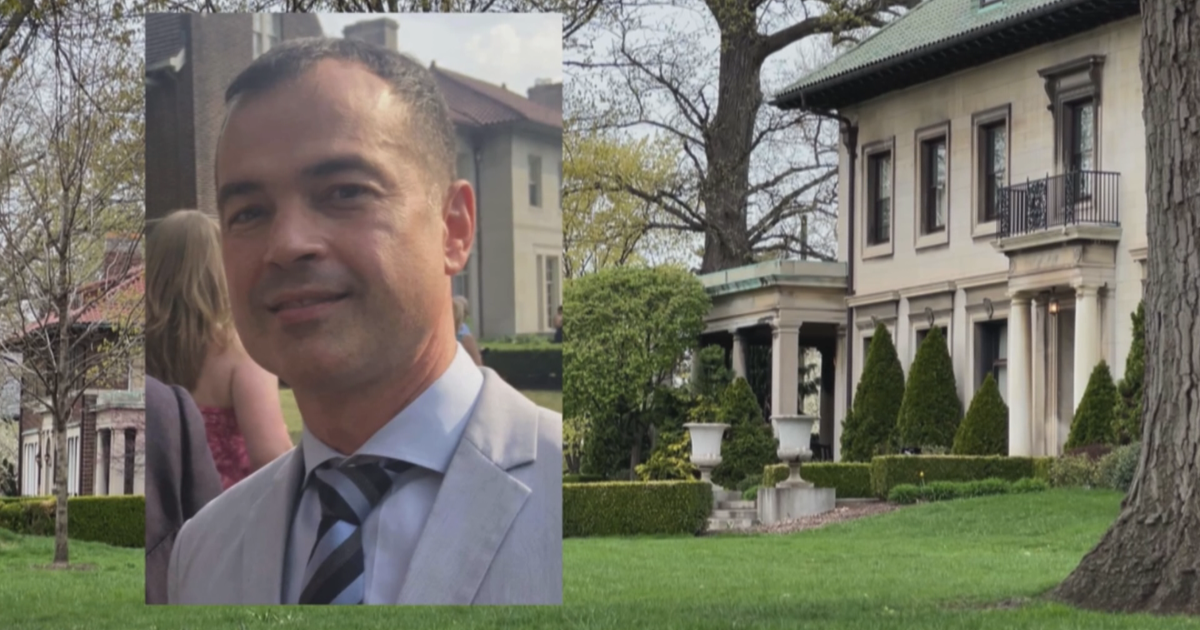Oscar Pistorius released on parole after serving almost 9 years for killing girlfriend Reeva Steenkamp
Pretoria, South Africa — South African athlete Oscar Pistorius has been released from prison on parole and is now at home, South Africa's Department of Corrections said Friday.
The department gave no more details of Pistorius' release. The announcement came at around 8:30 a.m., indicating corrections officials had released the world-famous double-amputee Olympic runner from the Atteridgeville Correctional Center in the South African capital, Pretoria, in the early hours.
Pistorius served nearly nine years of his 13 years and five months murder sentence for killing girlfriend Reeva Steenkamp on Valentine's Day 2013. He was approved for parole in November.
Serious offenders in South Africa are eligible for parole after serving at least half their sentence.
The Department of Corrections said in a two-sentence statement announcing Pistorius' release that it was "able to confirm that Oscar Pistorius is a parolee, effectively from 5 January 2024. He was admitted into the system of Community Corrections and is now at home."
Pistorius, known as the "Blade Runner" for his carbon-fiber prosthetic legs, was expected to initially live at his uncle's mansion in the upscale Waterkloof suburb of Pretoria, and a police van was seen parked outside that house.
Department of Corrections officials had said Pistorius' release time wouldn't be announced in advance and he wouldn't be "paraded" because they hoped to keep him away from the media glare that has trailed him since he shot Steenkamp multiple times through a toilet door at his home in the predawn hours of Feb. 14, 2013.
He will live under strict parole conditions until the remainder of his sentence expires in December 2029.
Steenkamp's mother, June Steenkamp, said in a statement earlier Friday that she had accepted Pistorius' parole as part of South African law.
"Has there been justice for Reeva? Has Oscar served enough time? There can never be justice if your loved one is never coming back, and no amount of time served will bring Reeva back," June Steenkamp said. "We who remain behind are the ones serving a life sentence."
"With the release of Oscar Pistorius on parole, my only desire is that I will be allowed to live my last years in peace with my focus remaining on the Reeva Rebecca Steenkamp Foundation, to continue Reeva's legacy."
The Department of Corrections has emphasized that the multiple Paralympic champion's release - like every other offender on parole - doesn't mean that he has served his time.
Terms of Pistorius's parole
Some of Pistorius' parole conditions include restrictions on when he's allowed to leave his home, a ban on consuming alcohol, and orders that he must attend programs on anger management and on violence against women. He will have to perform community service.
Pistorius will also have to regularly meet with parole officials at his home and at correctional services offices and will be subjected to unannounced visits by authorities. He isn't allowed to leave the Waterkloof district without permission and is banned from speaking to the media until the end of his sentence. He could be sent back to jail if he is in breach of any of his parole conditions.
South Africa doesn't use tags or bracelets on paroled offenders, so Pistorius won't wear any monitoring device, Department of Corrections officials said. But he will be constantly monitored by a department official and will have to inform the official of any major changes in his life, such as if he wants to get a job or move to another house.
Long trail of controversy
Pistorius has maintained that he shot Steenkamp, a 29-year-old model and law graduate, by mistake. He testified that he believed Steenkamp was a dangerous intruder hiding in his bathroom and shot through the door with his licensed 9 mm pistol in self-defense.
Prosecutors said he killed his girlfriend intentionally during a late-night argument.
Steenkamp's family didn't oppose his parole application in November, although June Steenkamp said in a victim statement submitted to the parole board that she didn't believe Pistorius had been fully rehabilitated and she thought he was still lying about the killing.
Before the killing, Pistorius was held up as an inspiring role model after having had both his legs amputated below the knee as a baby because of a congenital condition.
The year before he killed Steenkamp, Pistorius was a star of the London Olympics, achieving global recognition for being the first double amputee to run against able-bodied sprinters.
But his murder trial destroyed his image. He was accused of being prone to angry outbursts and acting recklessly with guns, while witnesses testified about various altercations he had with others, including an argument in which he allegedly threatened to break a man's legs.
Pistorius was first convicted of culpable homicide - a charge comparable to manslaughter - and sentenced to five years in prison for killing Steenkamp. After appeals by prosecutors, he was ultimately found guilty of murder and had his sentence increased, although that judgment by the Supreme Court of Appeal still didn't definitively rule that he knew it was Steenkamp behind the toilet door.
Pistorius was first sent to prison in 2014, was released on house arrest in 2015 during an appeal and was sent back to prison in 2016. He was initially incarcerated at the maximum security Kgosi Mampuru II Prison in Pretoria but was moved to Atteridgeville early in his sentence because it is better suited to hold disabled prisoners.
Reaction to Pistorius' parole has been muted in South Africa, a stark contrast to the first days and months after Steenkamp's killing, which sparked angry protests outside Pistorius' court hearings calling for him to receive a long prison sentence. There is no death penalty in South Africa.
"He has ticked all the necessary boxes," said Themba Masango, secretary general of Not In My Name International, a group that campaigns against violence against women. "And we can only wish and hope Oscar Pistorius will come out a better human being."
"We tend to forget that there is a possibility where somebody can be rehabilitated."






